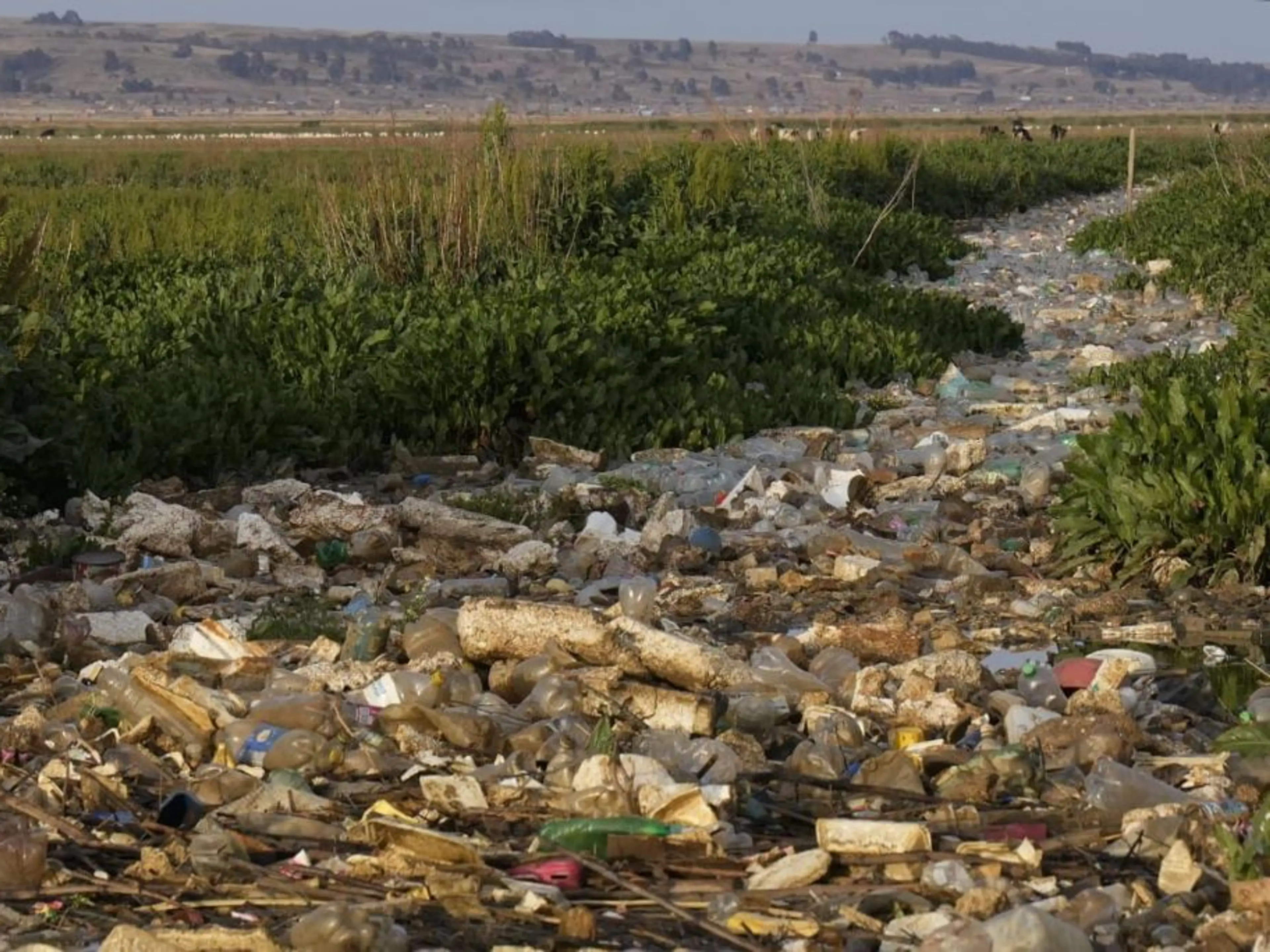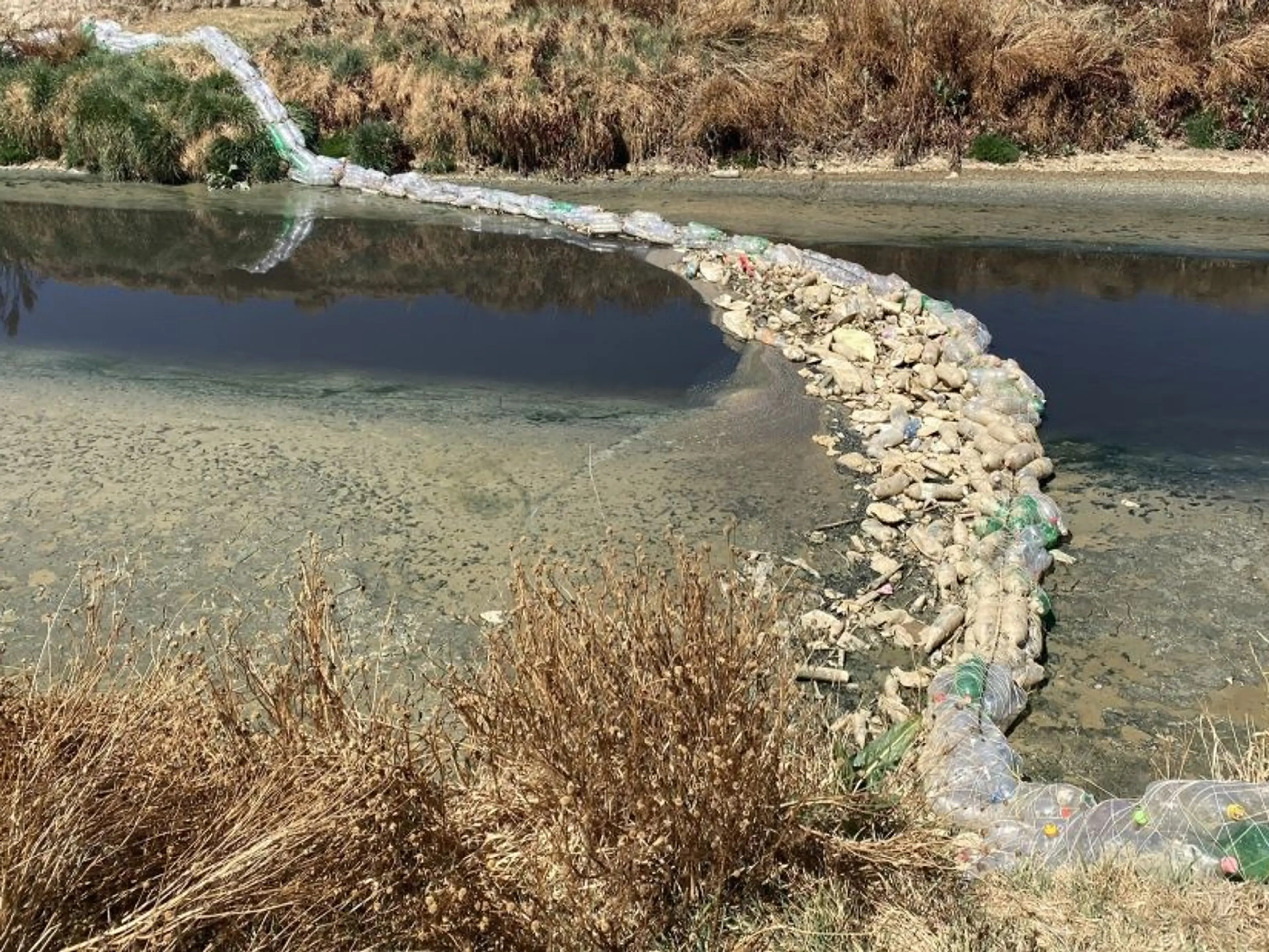Care of creation prayers
Use our prayer resources to pray for the care of the earth, our common home.
When visiting Lake Titicaca in the Andes mountains, you’d expect to see clear blue water and feel a sense of peace.
But despite its incredible height, the Bolivian lake still hasn’t escaped the devasting impact of the climate crisis.

A sea of plastic waste flowing towards the Katari river basin in Bolivia
Waves of plastic, contaminated water and pollution from the cities flow into this unique lake, affecting the Indigenous population and their environment.
This Earth Day, we are celebrating a community near Lake Titicaca, by the Katari river, who have come together to clear the tons of waste that washed up on their doorstep with the help from our local partner, Instituto de Investigación y Acción para el Desarrollo Integral (IIADI), who stand with them.
“One of the big issues that some of the most marginalised communities in Bolivia face is around water, either the lack of water because of the climate crisis or because of water contamination”
The Katari river is one of the most densely populated river basins in Bolivia. Almost 10 per cent of the country’s population (1 million people!) live here, as it includes the major cities El Alto and Viacha. The pollution from these cities flows into Lake Titicaca – an ancestral land where Indigenous communities, for centuries, have lived in harmony with the environment.
“Now, a sea of plastic bottles, bin bags and waste covers over five kilometres, and it’s constantly growing,” explains Carlos Revilla, one of the amazing people CAFOD works with in the region. “It’s producing a rancid smell that reduces the quality of life of the communities here.”
“The environmental issue manifests itself as an important social issue. It is not only the preservation of an emblematic lake or a tourist area, but rather it is fundamentally a process that is already generating environmental migration and the loss of livelihoods.”
Local people are forced to change their livelihoods because fish have started to disappear from the lake. They’ve moved from fishing to small-scale farming, but the contaminated water is not good for animal consumption, and the build-up of waste causes flooding which ruins the crops.
But changes are happening. With support from our local partner, IIADI, the community along the Katari riverside are putting in environmental solutions to the water pollution. The community have proposed to use plastic bottles to build a barrier to trap the plastic waste and recycle once collected.
We have started conversations with recycling companies to help communities cover their collective needs. This will help clear the waste and return Lake Titicaca to a tranquil space where people can thrive in a clean environment.

The community along the Katari riverside used plastic bottles to build a barrier to trap the plastic waste thats flows in the river
“A single barrier,” says Carlos Revilla, IIADI’s director, “could catch around five tons of rubbish coming from the city. Our calculation was that about seven tons of rubbish flows into the rivers every year and this is the proof that that is true.”
New solutions are evolving! CAFOD, alongside IIADI and Newcastle University, are trialling an alternative system to decontaminate the water using charcoal made by the community using their organic vegetable matter. Families are now using the clean water for their livestock, and our aim is to continue improving this new system to keep their water safe.
We also look at the bigger picture. CAFOD and IIADI are supporting the communities and environmental groups to campaign together and demand that the state institutions support large-scale changes, such as:
improvements in wastewater treatment plants
policies for river decontamination
monitoring industries along the river to keep their water clean.
Carlos explains that we’re now seeing private companies supporting these community water projects, which means less waste and more positive changes.
This year’s Earth Day is focusing on reducing production of plastic around the world (60 per cent reduction by 2040). At CAFOD, we’re celebrating the work of the Bolivian communities that are leading the battle against plastic to protect our common home.
Monday 22 April 2024 is Earth Day
Use our prayer resources to pray for the care of the earth, our common home.
We need to show Rishi Sunak that we want him to play his part in the fight to care for our common home.
Find out more about CAFOD's work with partner organisations in Bolivia to support people living in poverty, combat climate change, and address issues surrounding equality and human rights.